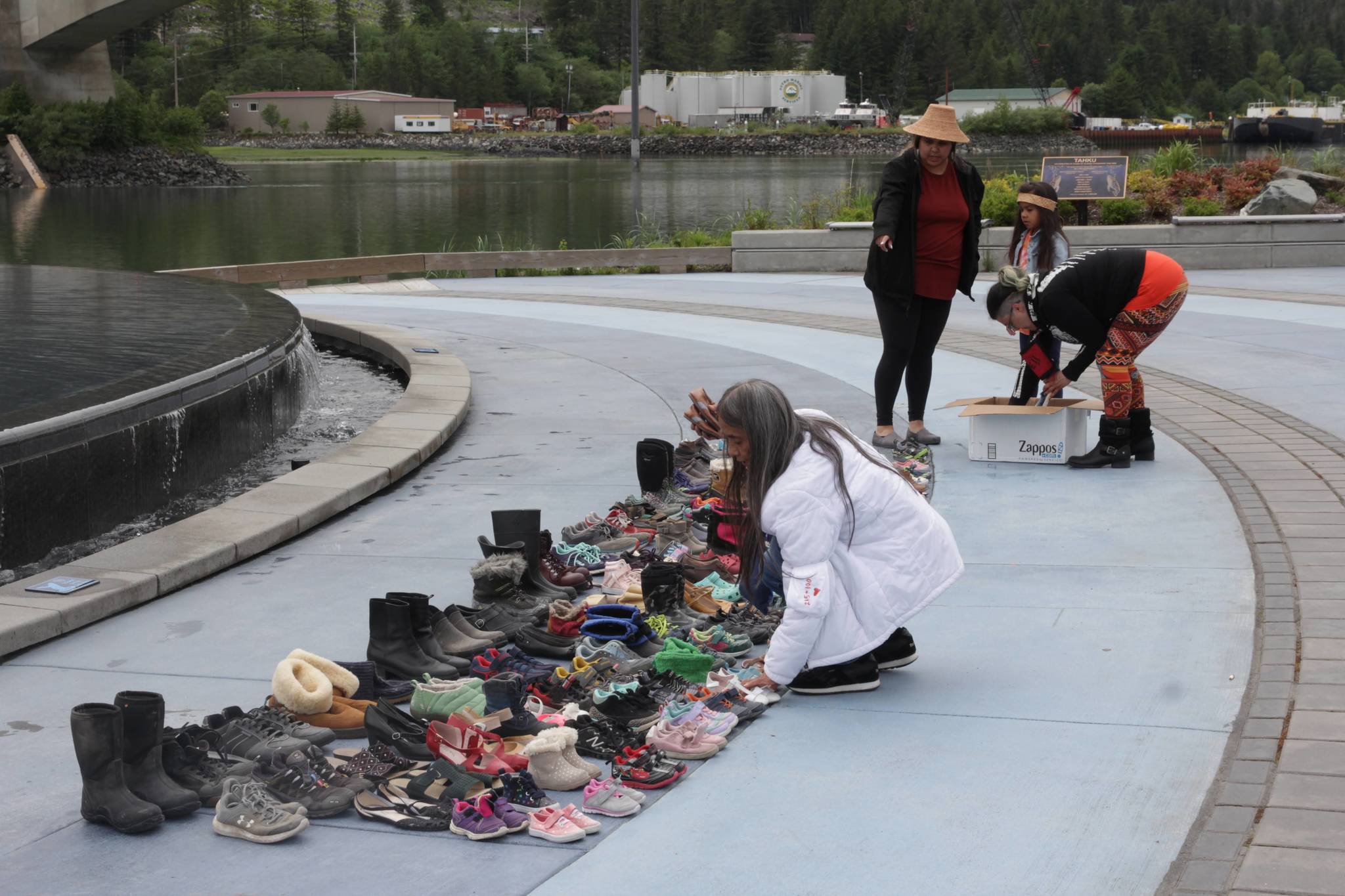Dozens of Juneau residents gathered at Mayor Bill Overstreet Park on Saturday afternoon to mourn the 215 children recently found buried near a residential school in Canada.
Hundreds of children’s shoes lined the plaza in front of the park’s prominent whale statue, Takhu, memorializing those children taken away to the residential schools and never returned, said event organizer Jeni Brown.
“We are here today because 215 little brown bodies were uncovered and their story needs to be shared,” said Yolanda Fulmer as she spoke to the crowd. “They need to be witnessed.”
More than 6,000 children died or disappeared in the Canadian residential school system, according to the Associated Press.
“These children couldn’t even comprehend why they were taken,” Brown said as she addressed a somber crowd. “They were all innocent.”
The discovery of the children at the Kamloops Indian Residential School, located northeast of Vancouver, was distressing to many in Alaska, where boarding schools run by the Bureau of Indian Affairs have their own ghastly legacy.
“Many of of us have stories from our elders about the horrors they endured,” Fulmer said, speaking of physical and sexual abuse, deaths and disappearances, forced sterilizations, abortions and infanticide. “Kill the Indian, save the man. These are all variations of the same sentiment across the U.S. and Canada.”
The schools, which were built with the intention of breaking Alaska Natives and other Indigenous people from their heritage and forcibly westernizing them, shattered Indigenous cultures and communities across North America, Brown said.
“This cultural genocide prevented them from learning anything their culture,” Brown said. “ We have lost our land, we have lost a whole lot of families to this, right here in Alaska.”
Many of the residential schools in Alaska ran until the late 20th century, according to the Alaska state archives. Those managed by Christian organizations are particularly notorious for their rates of abuse, according to the archives.
“As we look at the little shoes behind me, I’m reminded of the vicious attacks on our most precious: our little ones,” Fulmer said. “These shoes serve a s reminder of all the little feet that never found their way back home.”
Another vigil for the lost children was held at Douglas on Memorial Day, adorning a school built by the BIA with feathers and flowers.
“They were lost for a while, but they were never forgotten,” Fulmer said. “Today, we remember them.”
An international vigil for the children of Kamloops is planned for June 21 at the whale statue at 5 p.m., Brown said in an email.
• Contact reporter Michael S. Lockett at (757) 621-1197 or mlockett@juneauempire.com.

